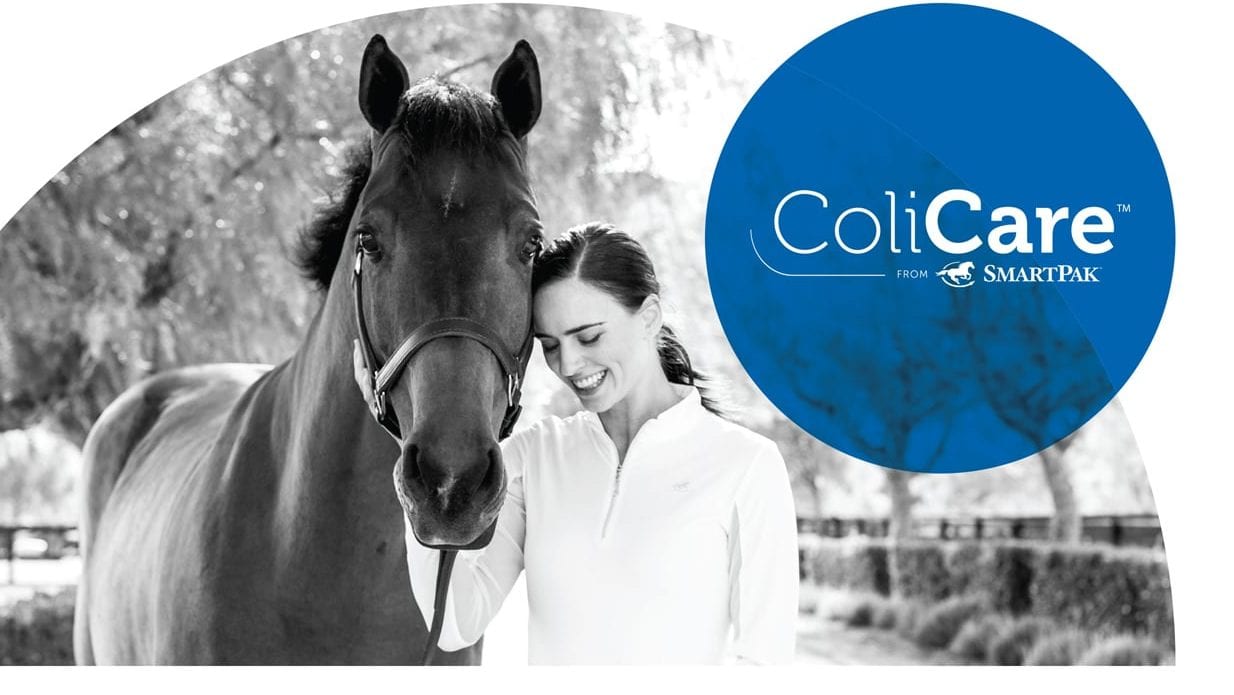Colic is a potentially deadly and unfortunately common condition that affects horses of all ages, breeds, and disciplines. In fact, the American Association of Equine Practitioners (AAEP) estimates 700,000 horses will colic each year in the U.S. alone.
But with the right care and management, you can help ensure your horse has everything he needs to maintain a happy and healthy hindgut. SmartPak has outlined a few of the most common proven* risk factors for colic below, along with tips on how you can help reduce your horse’s risk.
1. Make any changes to your horse’s hay or grain as gradually as you can
Changing your horse’s grain (type or amount) increases his risk of colic up to 5 times, while changes in hay increase the risk of colic a startling 10 times! Change hay and/or grain as gradually as possible, ideally blending the old and new types for 7-10 days, to help ease the stress on your horse’s hindgut.
2. Maximize your horse’s turnout time
Lack of turnout is unnatural for your horse, and increased stall time can increase your horse’s chances of digestive upset. Because your horse was designed to move around up to 20 hours per day, give him as much turnout as possible.
3. Keep your horse on a deworming program targeted to his individual needs
Failure to receive appropriate deworming doubles your horse’s risk of developing colic. A sound parasite control program includes fecal egg counts, strategic use of dewormers, as well as conscientious manure and herd management. You can learn more about targeted deworming strategies here.
4. Make any changes to your horse’s exercise schedule as slowly as possible
Changing your horse’s exercise routine (whether increasing or decreasing workload) has been linked to digestive upset. Keep your horse’s turnout and exercise schedule as consistent as possible, and try to make any changes gradually. When weather limits your horse’s turnout time, try hand-walking, lunging, or riding if possible.
5. Enroll your horse in ColiCare
ColiCare is a free veterinarian-directed wellness program that provides up to $10,000 in colic surgery reimbursement. It brings together SmartPak’s best hindgut supplements with annual wellness care from your veterinarian to help lower your horse’s risk of digestive upset. Get started today at SmartPak.com/ColiCare







